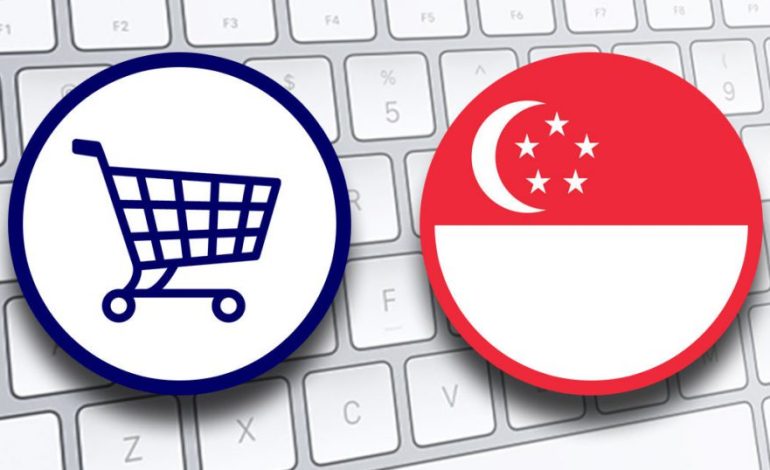The most crucial aspect of an eCommerce website, or at least it should be, is security. Online business owners that lack adequate security expose their clients, their brand, and themselves to fraud and identity theft. Not to mention that stolen credit card information might ruin your finances, causing severe losses for your company.
Don’t assume that simply because your company is now little, it is secure. The truth is that smaller companies are significantly more frequently targeted than bigger ones. Cybercriminals anticipate lax or nonexistent protection on eCommerce websites used by small enterprises.
And they’re not mistaken. Small eCommerce websites are constantly in danger. An online security company’s data shows that 29%, or over a third, of a website’s traffic, is made up of bots that are trying to damage it.
In addition to actual financial fraud, data or security breaches harm the reputation of your company. Why should you expect your consumers to feel secure making purchases from you if you yourself won’t do so on an unsecure website?
Additionally, it will be difficult to retain existing clients after a breach, let alone attract new ones. Therefore, the main goal of eCommerce security is to ensure that both your company and your customers feel secure.
You might be asking what else you can do to safeguard your website, your users, and yourself now that you are aware of the most typical sorts of security dangers to your website. So we’ve put together a list of advice to help you protect an eCommerce website you manage.
1. Choose a secure web host and eCommerce platform
There are many eCommerce solutions for your platform needs, but you need both a secure platform and a web host for optimal protection. Most eCommerce website builders do have some security measures built-in. But not all platforms and hosts are the same, or even equal.
Your best option is to shop around and check out different hosts and platform providers to find the best fit for you, your business, and your customers. Find a host and platform combination that will offer complete protection from the most common threats, such as malware and SQL injections.
- Get an SSL certificate
In addition to finding providers that have built-in security protocols and benefits, you want to get an SSL certificate like Wildcard SSL certificate.
It helps to encrypt the data between your website and the user’s web browser – making it unreadable for everybody, except you and the user. An SSL certification is actually mandatory for all eCommerce websites under the Payment Card Industry (PCI) Data Security Standard.
Any kind of merchant or eCommerce-based business needs to comply with the PCI Security Standards. They’re in a place to guarantee that businesses take action to protect consumers from identity theft and fraud.
2. Perform regular SQL checks
SQL injections can be made in any user input form on your website, so checking regularly for these kinds of vulnerabilities is paramount to the safety and security of your website.
Depending on the platform that you choose to use, there are several software options that can help to monitor and protect your website from these injections. There are also free site scanners that will perform the same tasks, but make sure to read reviews and only download from trusted vendors.
Set the scanner you choose to run daily checks on your website’s security. This way, if there are any vulnerabilities, they can be found and secured before someone takes advantage of them.
3. Leave payment and data processing to the experts
The best way to not lose any customer data is not to have any! Don’t collect or keep any of your customers’ private data on your website unless absolutely necessary.
For payments, use a third-party, encrypted checkout tunnel to process payments – this is a standard procedure for eCommerce sites. Most popular payment gateways are completely secure and are not known for leaking any sensitive user data.
Read Also: How to Start an E-commerce Business in Singapore?
Choose a payment platform that is compatible with your eCommerce web host and platform. You want something that will offer the best, industry-leading fraud prevention and identity theft protection.
4. Keep your website updated and patched
As hackers find vulnerabilities, app developers find ways to fix them. New updates on website software come out all the time – and often, they include crucial security patches.
As a result, you should pay close attention to updates as they’re introduced. If your updates aren’t automatic, you need to be extra careful to manually update them. But, it is a good idea to turn on automatic updates, not only for your website but for your entire computer.
5. Monitor what you download and integrate
Being able to download and integrate plugins, tools, apps and more directly to your website is a great thing! But, always be aware of what you’re downloading and using. Some hackers will use these add-ons to implant malicious protocols on your website.
Sometimes, it’s not even intentional. Various plugins may not be fully optimized with your software and make your website vulnerable to attacks. The same security measures you take for your website can generally be used to protect your entire computer as well. Make sure you use trusted protection for both professional and business uses.
6. Regularly back up your website data
Backing up your eCommerce website won’t stop any security threats you may face, but it will help to minimize or reduce the damage done. Really, it’s a strategy that will help protect information from being lost, corrupted, or held hostage.
It’s a good business practice to take the time and back-up your website as often as possible. Any time you make an update, back up the website. At a minimum, you should be backing up the website once every three days, but the recommended is to back it up once a day.
You can, of course, set up automatic back-ups to take place so that you don’t manually have to start the process. Most website builders and web hosts will offer website back-ups as a built-in feature – make sure to choose the platform that can guarantee you that.
7. Get and use a website application firewall
A Website Application Firewall, or WAF, will help to take the security of your eCommerce website to the next level. It will protect your website from XSS, SQL injections, and forgery requests.
It should also protect your website from any hacking attempts, including brute force attempts. Also, it should help to reduce the risk of suffering a DoS or DDoS attack. There are several great web application firewall vendors out there. Find one that fits your needs and budget and one that is trusted by the community of eCommerce businesses.


